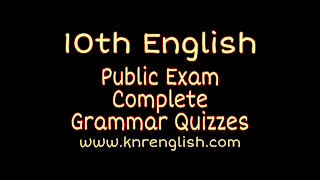Here are some commonly tested words on the TOEFL exam:.
Analyze: Examine in detail, typically for the purpose of interpretation or explanation.
Comprehend: Understand the meaning or nature of something.
Contradict: Assert the opposite of; deny the truth of.
Distinguish: Recognize or treat as different or distinct.
Evaluate: Assess or judge the value, quality, importance, or effectiveness of something.
Infer: Deduce or conclude information based on evidence and reasoning.
Justify: Show or prove to be right or reasonable.
Summarize: Give a brief statement of the main points of something.
Synthesize: Combine different ideas, concepts, or elements to create something new.
Verify: Confirm the truth, accuracy, or validity of something.
Ambiguous: Open to more than one interpretation; having a double meaning.
Convey: Transport or carry to a place; communicate or make known.
Elaborate: Add more detail concerning what has already been said or written.
Explicit: Stated clearly and in detail, leaving no room for confusion or doubt.
Imply: Strongly suggest the truth or existence of something not expressly stated.
Interpret: Explain the meaning of something; understand or translate in a particular way.
Paraphrase: Express the meaning of something using different words, especially to achieve greater clarity.
Relevant: Closely connected or appropriate to the matter at hand.
Underlying: Existing beneath the surface or as the basis or cause of something.
Valid: Well-founded, sound, or justifiable; based on truth or evidence.
Bias: Prejudice or inclination towards a particular perspective, opinion, or outcome.
Cite: Quote or refer to as evidence or justification for an argument or statement.
Critique: A detailed analysis or evaluation of something, such as a literary or artistic work.
Empirical: Based on observation, experience, or experiment rather than theory or speculation.
Hypothesis: A proposed explanation or theory that is yet to be tested or proven.
Inconsistent: Not staying the same throughout; lacking harmony or agreement.
Methodology: The system of methods and principles used in a particular area of study or activity.
Plausible: Seeming reasonable or probable; believable.
Quantitative: Relating to, measuring, or measured by the quantity or amount.
Qualitative: Relating to, measuring, or measured by the quality or characteristics.
Abundant: Existing or available in large quantities; plentiful.
Arid: Lacking sufficient water or rainfall; dry and barren.
Deplete: Use up the supply or resources of; diminish in quantity.
Ecosystem: A biological community of interacting organisms and their physical environment.
Endangered: Seriously at risk of extinction or elimination.
Famine: An extreme scarcity of food, leading to widespread hunger and starvation.
Pollutant: A substance that pollutes, especially one that contaminates the environment.
Renewable: Capable of being restored or replenished; not depleted with use.
Sustainable: Able to be maintained or continued at a certain rate or level without depleting resources or causing harm.
Toxic: Poisonous or harmful to living organisms.
Catalyst: A substance that increases the rate of a chemical reaction without being consumed in the process.
Chemical: Relating to or produced by chemicals; involving or used in chemistry.
Compound: A substance formed by the chemical combination of two or more elements.
Crystalline: Having a regular and repeating arrangement of atoms or molecules, forming crystals.
Density: The degree of compactness of a substance, measured by the mass per unit volume.
Kinetic: Relating to or resulting from motion; active or dynamic.
Molecule: The smallest unit of a chemical compound, consisting of two or more atoms held together by chemical bonds.
Oxidize: Combine or become combined chemically with oxygen.
Precipitate: Cause a substance to be deposited as a solid from a solution or suspension.
Substantial: Of considerable importance, size, or worth; significant.
Aesthetic: Concerned with or appreciative of beauty or the arts.
Artistic: Having or showing creative or imaginative skill in the arts.
Creativity: The ability to use the imagination to produce original ideas, artistic expressions, or solutions.
Genre: A category or type of artistic, musical, or literary composition characterized by a particular style, form, or content.
Imagery: Visually descriptive or figurative language, especially in a literary work.
Prose: Written or spoken language in its ordinary form, without metrical structure.
Symbolism: The use of symbols to represent ideas or qualities.
Tone: The general character or attitude of a piece of writing, speaking, or music.
Verse: A line of poetry; a group of lines forming a unit within a poem.
Interpretation: The act of explaining the meaning or significance of something; understanding or translating in a particular way.
These definitions should help you understand the meanings of these words. Remember to practice using them in context to improve your vocabulary skills. Good luck with your TOEFL preparation!










No comments:
Post a Comment